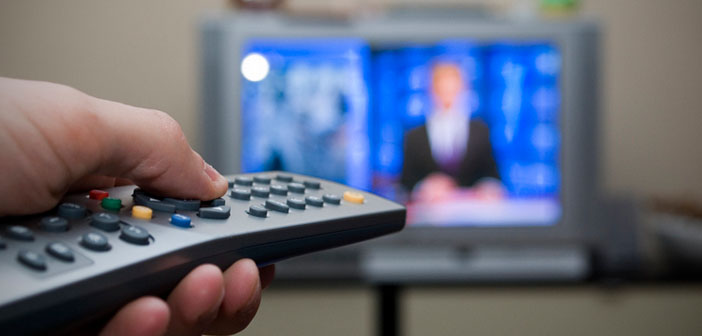Archived
First debate democracy
The first presidential debate on September 26 is expected to be the most watched debate in history and is quickly approaching. Hillary Clinton and Donald Trump must prove to the…
Archived
Flickr – flashpro
(Person changing channel with remote)It’s no secret that campaigns are big money-makers. The 2012 election, the most expensive in history, cost over $7 billion — that’s a lot of buttons and yard signs. Through October 29, 2012, President Obama and Governor Romney spent $265 million on campaign advertisements alone as they battled for the national audience’s attention. It sounds glib, but when candidates spend, media conglomerates get paid.
There are clear problems with this system. Within this framework, the more you spend, the more airtime you receive. This relationship makes it nearly impossible for candidates with less money to compete, and in a midterm election where the biggest spender won 94 percent of House and 82 percent of Senate races, the rising cost of running for office discourages qualified, if non-wealthy candidates.
Media companies look forward to the elections precisely because they are so lucrative. Peter Liguori, chief executive of the television station-owning Tribune Company, foresees his company raking in $200 million in the 2016 cycle. This translates to an “enormous opportunity,” he says, and he’s right. With spending for the 2016 election estimated as high as $10 billion, and a Borrell Associates study projecting $1 billion in online advertising, media companies stand to make huge profits.
Is there any way to mitigate the astronomical price of campaign advertising? Lowering or eliminating airtime fees might help. Campaign finance reform centers on the idea of leveling the playing field, ensuring that the best candidates are able to run, and win, without the specter of special interests and money hanging over their heads.
And we badly need reform in this area. A study by University of Delaware Professor Danilo Yanich and the Sunlight Foundation found that in the 2014 midterm elections, groups spent $14 million to air almost 12,000 advertisements on stations in the Philadelphia area – “a ratio of 45-to-1” between ads and general political stories broadcast. Local television has pulled in record revenue in this limited-control system. According to Pew Research Center, a total of $3.1 billion in political ads was spent on local television spots during the 2012 presidential election, more than double the 2008 amount. Since 49% of surveyed Americans get political news from their local stations, exposure matters.
The media is fighting to protect this profit. Last year, the National Association of Broadcasters spent $14.8 million, making it the sixth highest lobbying spender in 2014. In the past, the NAB has opposed FCC rules requiring broadcasters to post political advertisement spots purchased on their networks, though it appears to have loosened its stance in recent years.
When so many Americans rely on local stations for political news, the news they get can be tied directly to public awareness about an issue. As a Media Matters report points out, from April 21 to June 2, ABC, NBC, and CBS evening news programs neglected to talk about Jeb Bush’s non-candidacy fundraising controversy a single time. Media’s failure to cover campaign finance issues is a problem, and while political advertisement reform would not change the stories the stations air, it would alter what viewers see during the commercial breaks.
Issue: Money in Politics
Archived
The first presidential debate on September 26 is expected to be the most watched debate in history and is quickly approaching. Hillary Clinton and Donald Trump must prove to the…
Archived
Issue One Advisory Board member and former chief ethics lawyer for President George W. Bush asked Hillary Clinton the only question that matters in the discussion about the Clinton Foundation:…
Archived
So now you want the FEC to work, Donald McGahn? It’s a little too late. Yesterday, Donald Trump’s top political attorney and former Federal Election Commission Chair Donald McGahn spit…

